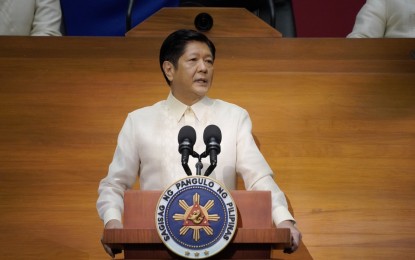Marcos Jr. on PH Energy: Build new power plants
- July 26, 2022
- 0

With the energy demand continuously growin
“There is some room to expand our present power supply through existing power sources, but this is only to a very limited extent. We must build new power plants. We must take advantage of all the best technology that is now available, especially in the areas of renewable energy,” Marcos Jr. said in his first State of the Nation Address (SONA).
While increasing the level of energy production in the country, Marcos Jr. said the government would also need to improve the power generation mix between traditional and renewable energy sources.
“The technology on renewable energy is progressing rapidly. And many of these technologies are appropriate for the Philippines. We have already begun windmill power. We are now expanding very quickly our solar power production,” Marcos Jr. added.
The president cited World Bank’s Offshore Wind Roadmap for the Philippines where the country has an estimated 178 gigawatts (GW) of potential offshore wind resources in his SONA. He added that solar power “is practical almost everywhere in the Philippines all year round.”
While the country shifts to renewables, Marcos Jr. said that natural gas will play a key role in power generation.
“We will provide investment incentives by clarifying the uncertain policy in upstream gas, particularly in the area close to Malampaya. This requires clarification of the processes and review of service contracts policy,” Marcos Jr. said.
In addressing the rising electricity prices, Marcos Jr. said a review of the transmission and distribution system is needed to mitigate power prices.
“We must expand the network of our transmission lines while examining schemes to improve the operation of our electrical cooperatives. All this is in aid of reducing energy cost especially but not limited to households,” Marcos Jr. said.